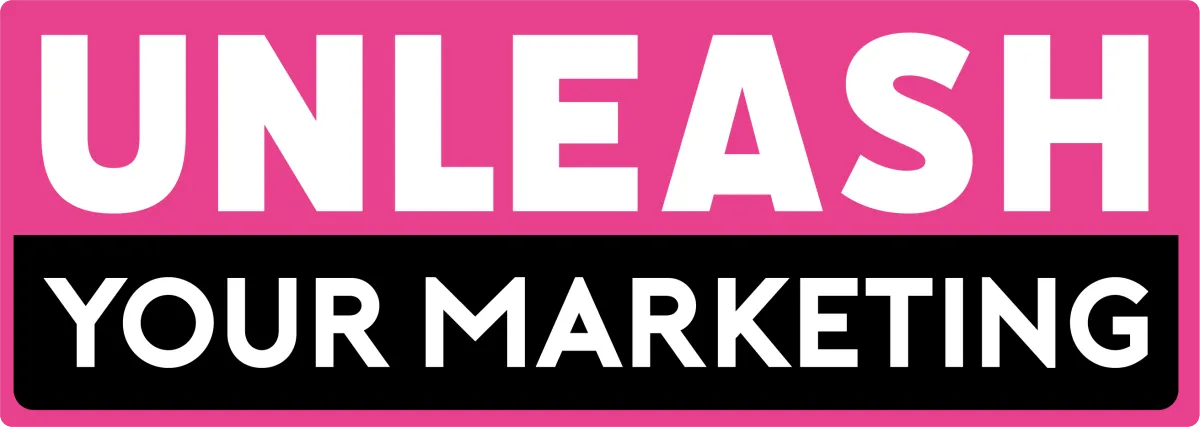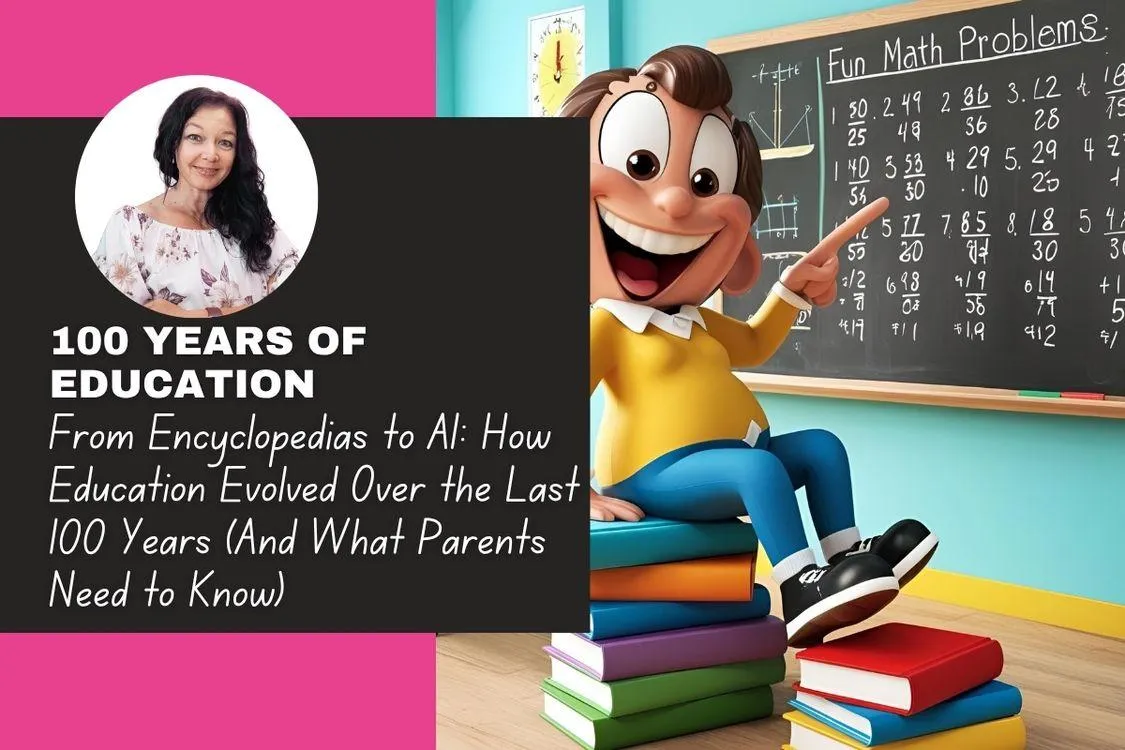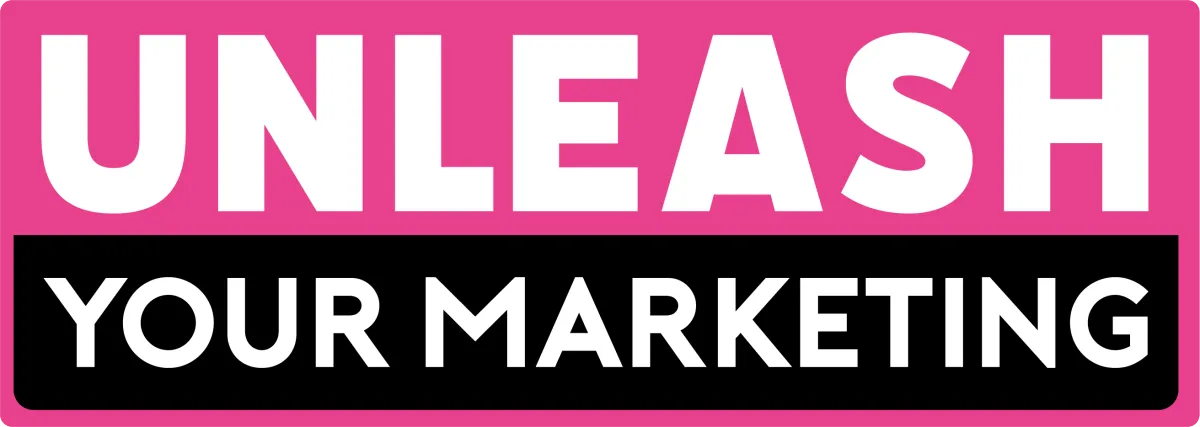
Marketing & AI Digest
Tips & Tricks to help you unleash the marketing in your business

From Encyclopedias to AI: How Education Evolved Over the Last 100 Years (And What Parents Need to Know)
"Children must be taught how to think, not what to think."
— Margaret Mead
Stop. Just for a second.
Before we dive into the algorithms, the bots, and the brain-boosting apps, I want you to picture this:
It’s the 1960s. You’ve got a polished wooden desk, a heavy textbook in front of you, and a set of well-worn encyclopedias lined up like sacred scrolls on the bookshelf. Knowledge lived on printed pages. Learning meant memorizing. And questioning the teacher? That was almost a crime.
Fast forward to now.
Your child asks a question and before you can answer, ChatGPT spits out a well-structured explanation. Complete with analogies and quiz suggestions.
Crazy, right?
Over the last 100 years, education has evolved from dusty chalkboards to AI-powered learning assistants. But here’s the twist: while the tools have changed, the core problems in education? Many of them haven’t.
Let’s unpack this evolution, one messy, beautiful, digital decade at a time.
The Factory Model: 1920s–1940s
Let’s take a moment to be brutally honest - education back then wasn’t designed to inspire critical thinkers. It was built to produce obedient workers.
Structure: Bell rings. Line up. Sit still. Memorize. Repeat.
Focus: The “Three Rs” - Reading, wRiting, aRithmetic.
Tech? Chalk. Pencils. Maybe a globe if you were lucky.
The curriculum was rigid. One-size-fits-all. You either fit the mold or you were labeled as “difficult.”
Who benefited?
Wealthier white males, primarily. Girls and children of color were often sidelined, offered fewer resources and opportunities.

Encyclopedias and The Expansion Era: 1950s–1970s
Welcome to the rise of printed knowledge. Encyclopedias were everything. If you had a full Britannica set at home? You were basically a genius in the eyes of your neighbors.
But underneath the surface, the world was shifting:
Civil Rights Movement forced the U.S. to address racial inequality in schools.
Post-war boom meant more kids, more schools, and the need for more teachers.
Early reformers like Montessori and Piaget began whispering that maybe - just maybe children learn better through play and exploration.
Oh, and let’s not forget the Space Race. Suddenly, science and math were the golden children of education.

Testing & Technology: 1980s–1990s
Enter the age of standardization...Pentium computers and floppy disks.
"A Nation at Risk" (1983) dropped like a bombshell, claiming U.S. schools were failing.
The response? More tests. More accountability. Less play.
Technology arrived, but it was clunky. Oregon Trail taught us to die of dysentery more than anything else.
Despite the appearance of computers, schools still stuck to industrial-era thinking. Sit down. Pass the test. Move on.
Meanwhile, encyclopedias - though still highly prized - started collecting dust as CD-ROMs made their debut. Remember Encarta? It was a game changer!

The Digital Shift: 2000s–2010s 🌐
This is when things really start to get spicy.
Google replaced encyclopedias.
YouTube became a global classroom.
Khan Academy lets kids in rural India learn algebra on the same level as kids in Manhattan.
Online Courses exploded, offering flexible options beyond brick-and-mortar schools.
But let’s not romanticize it.
Alongside this digital wave came:
Increased screen time
Widened inequality (tech access was, and still is, wildly uneven)
And let’s be real, some schools just slapped a smartboard in the room and called it “innovation.”
Then Came 2020: The Great Educational Earthquake
Ah yes, the year everything broke.
COVID-19 didn’t just disrupt education. It exposed its deepest cracks.
Millions of families realized overnight that school wasn’t just about learning - it was about childcare, meals, structure, and support.
Zoom fatigue became a real thing. Kids zoned out. Parents burned out.
And suddenly, moms and dads became co-teachers... whether they liked it or not.
Homeschooling surged. Online learning platforms multiplied like rabbits. But quality? That varied wildly.

AI Enters the Classroom (And Your Living Room)
Now we’ve arrived in today’s timeline. You’re here, reading this, because something tells you that AI could help, but can also harm your child’s education.
And you're absolutely right to pause and ask questions.
Here’s what’s real:
AI Can Absolutely Enhance Education
It personalizes learning based on your child’s pace.
It breaks down complex concepts into simple explanations (in any language).
It offers instant feedback - way faster than waiting for a marked paper.
But...
AI Shouldn’t Replace Critical Thinking
If a child uses AI to write every essay, solve every math problem, and answer every science question, what’s left?
The ability to think. To wonder. To struggle. To grow.
When tools do all the thinking, curiosity becomes collateral damage.
And as much as I love Leo (my affectionate nickname for my custom ChatGPT), he’s not your child’s conscience. He won’t teach empathy, ethics, or how to handle rejection from a university - or a friend.

So What Should Families Do?
Here’s where it gets personal. This isn’t about fearing tech. It’s about teaching kids to lead it, not lean on it.
1. Use AI as a Co-Pilot, Not the Driver: Encourage your kids to brainstorm with AI, not copy-paste from it. Let them ask big, bold questions and compare AI answers to real-world experiences.
2. Keep Encyclopedias (Metaphorically Speaking) Alive: Remember those bulky books with gold-lettered spines? They weren’t just reference tools. They were windows into curiosity.
Even if we don’t use physical encyclopedias anymore, we should encourage that same depth of exploration. Teach kids to do deep research, not just Google.
3. Talk About Ethics Early: AI bias is real. Data privacy matters. Critical thinking isn’t optional - it’s armor. Start these conversations young. Trust me, kids are more ready than we think.
4. Balance Tech With Human Learning: Conversation. Play. Nature. Reading real books. These still matter. Always will. Because no matter how “smart” AI gets, it can’t replicate the nuance of a human hug, the glow of a child mastering a skill, or the slow, beautiful burn of genuine understanding.
Final Thoughts: We’re Not in 1924 Anymore
Education has come a long way. From the click of a fountain pen to the blink of an AI-generated flashcard, we’ve transformed what learning looks like.
But the why? That still matters.
We teach not just to fill heads but to form hearts. And no app, bot, or chatbot can replace the power of a curious child guided by a present, mindful adult.
So let’s move forward with eyes open. Let’s embrace the tools without outsourcing the teaching. And above all -
Let’s raise thinkers. Not just answer-seekers.

Want to know how to use AI ethically and effectively in your homeschool or family life?
Subscribe to my newsletter for real stories, weekly AI tips, and creative ways to raise kids who think before they prompt.
👉 Join the newsletter here: https://www.joynicholson.com/
👉 Want to protect your kids and teach them about AI safely?
👉Download your free [Family AI Starter Kit] — fun, interactive, and created for parents like you. Let’s build digital resilience, together.
For a small investment you can get access to Teach Your Family AI. Mini challenge. https://course.aikidscreative.com/
#AIInEducation #EthicalAI #HomeschoolingWithAI #ParentingInTheDigitalAge #FromEncyclopediasToAI #PersonalizedLearning #CriticalThinking
Contact us Today: +61 41 060 0653

Copyright © 2023 | Unleash Your Marketing | Service Agreement
* DISCLAIMER: This site is not a part of the Facebook™ website or Facebook™ Inc. Additionally, this site is not endorsed by Facebook™ in any way. Facebook™ is a trademark of Facebook™ Inc. There is no guarantee that growth will occur in 30 days. Results vary because of many factors, including the action taken by the person taking the challenge.
All testimonials are based on actual client results and are not promised. Your results fully depend on your action and dedication to implementing the tools provided to you during your Unleash Your Marketing experience | Prices are in USD | It is the customers responsibility to cancel within 7 days, or a full refund will not be given.
